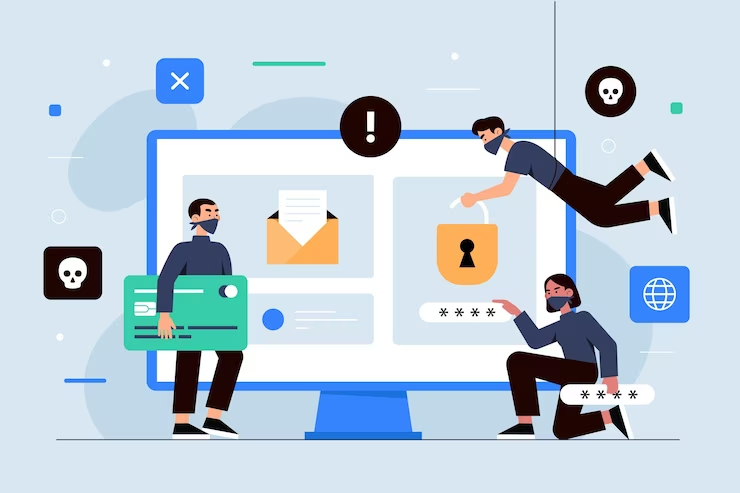The E-commerce business is booming every day as more and more people are having internet connections. Also, online stores give the freedom to browse products from huge databases without visiting physically shop to shop. Just within an hour of research, you can find the product of your choice online, and that will be delivered to your house once you order it. Because of the ease of use, online stores are increasing day by day.
In this fierce competition of digital commerce, launching your own e-commerce business or an online store from scratch becoming the trend nowadays as the success of online stores can allure anyone to go for starting their own store. The increase in e-commerce popularity is driven mainly because of the ease of use and one can order products from anywhere. When you go for offline shopping, you generally visit your nearby stores but when it comes to online stores, you can order from any website no matter whether it is in your city or in other or even in another country. You just have to check whether they are shipping to your location. Due to such freedom, ease of use, and global clientele prospect, starting your own recommence business from scratch can be a great idea. In this guide we uncover the essential steps to build your ecommerce business from scratch.

From finding a profitable niche to making a comprehensive business plan, we will go through each crucial phase. Next, we’ll dive into setting up your online store, managing inventory efficiently, and implementing effective marketing strategies.
Launching Your Own E-Commerce Business from Scratch
1. Finding Your Niche
Identifying the right niche is crucial for any business venture whether it is a big business or a small one. Even to blog, you have to find a profitable niche. Niche selection is equally important for E-commerce business. Your niche selection may decide your success or failure. Yes, a bad niche can make you unsuccessful, whereas the right niche can take you to the top.
While choosing a niche, you have to look for many things but your own interest matter as well. For example, if you have an interest in selling an electronic products, and you are selecting to sell clothing, it won’t be good even if it has better potential. You must have to balance between your interest and profitability.
First, you narrow down your interest, and in that, try to find the micro niche. That is the best idea. Look for gaps in the market and consider your target audience’s preferences and behavior. A well-defined niche allows you to focus on your efforts and resources that further increasing your chances of success. Strike the right balance between specificity and market size. Validate your niche’s viability with a minimum viable product or pre-launch surveys. Take time to research and analyze untapped possibilities. Your chosen niche will be the cornerstone of your ecommerce journey, so choose wisely.
2. Building a Business Plan
Once you are finalized your niche, making a business plan is what you need to do. Without a plan, you cannot go ahead. You have to make a roadmap as to how you will go about your business, and all the things such as investments, designing the store, domain name selection, finalizing product listing on the store, setting up the payment gateways, and so many things you have to check as per the e-commerce website checklist.
You must conduct a thorough target audience analysis to understand your potential customers’ needs and preferences. Analyze your competitors to identify opportunities for differentiation and growth. See, in every business, there is a huge crowd, and you have to make your own way out of that. Thus, you have to find out what kind of issues customers are facing in the niche you are working, and what customers would like or need. You have to make a better plan than your competitors to fill the gap that is there. Then only, you can think of getting success.
Apart from these, you must keep Marketing strategies in your business plan because, without marketing, you won’t be able to attract enough customers to your store. Marketing may include SEO, PPC, Social Media Marketing, content marketing, influencer marketing, and so on.
3. Setting Up Your Online Store
Bringing your ecommerce vision to life starts with setting up your online store. You must choose a user-friendly platform like Shopify. Why I am asking to go for Shopify and not others or custom design is because shopify has been a proven platform for making online stores. If you go with a custom design, it won’t be cost-effective, and also, it will take months to fully develop an online store. Thus, going with Shopify is the best bet. Further, Selecting a domain name is also important because you would want to have domain name that is small, and memorable such as Amazon.com, Google.com, as such. These are small, and very memorable domain names.
Add enticing product listings with high-quality images and compelling descriptions. Ensure secure payment gateways for customer trust. Implement essential security measures like SSL certificates to protect customer data. Test thoroughly before the launch.
Your ecommerce website represents your brand, so make it shine. With a well-designed online store, you’re ready to embark on your ecommerce journey and captivate customers worldwide.
4. Inventory Management
Effective inventory management is vital for the smooth operation of your ecommerce business. Carefully source your products, considering factors like quality, price, and supplier reliability. Keep track of inventory levels to avoid stockouts and overstocking.
Consider adopting dropshipping as an inventory management strategy, enabling you to partner with suppliers who handle order fulfillment and shipping. This approach minimizes upfront costs and streamlines logistics.
Implement inventory management software to automate processes and gain insights into product performance. Regularly analyze sales data to identify popular items and plan for seasonal demand.
5. Implementing Marketing Strategies
Marketing is the most important part after setting up the store because without it, you will fail to attract customers to your online store. Thus, you must do everything that you can do. Generally, online marketing includes these:
- Search Engine Optimization (SEO): Optimize your website with relevant keywords to rank higher in search engine results and drive organic traffic. You can go for On Page Optimization, and then Link building to make sure higher ranking in SERPs.
- Social Media Marketing: Social media platforms are great to market your business because a huge mass of people hang out on social sites. So, leverage popular platforms like Facebook, Instagram, and Twitter to connect with potential customers, build brand awareness, and run targeted ad campaigns.
- Content Marketing: Create valuable and engaging content, such as blog posts, videos, and infographics, to attract and retain customers.
- Email Marketing: Build an email list and send personalized campaigns to nurture customer relationships and drive sales.
- Influencer Partnerships: Collaborate with influencers and bloggers in your niche to expand your reach and tap into their engaged audience.
- Paid Advertising: Invest in paid ads on platforms like Google Ads or Facebook Ads to increase visibility and drive traffic to your website.
- Referral Programs: Encourage customers to refer friends and family by offering incentives or discounts for successful referrals.
Monitor the performance of your marketing efforts using analytics tools and adapt your strategies based on data-driven insights. Consistent and targeted marketing will boost your ecommerce business and help you stand out in a competitive market.
6. Handling Logistics and Customer Service
Efficient logistics and exceptional customer service are the backbone of an online e-commerce business. Especially the customer care service becase when you sell online, there might be more questions your customers would have. Thus setting up a customer care service is utmost important to solve your customers’ queries, and helping them with orders, refunds, replacements, etc. Also, establish streamlined order fulfillment processes to ensure timely deliveries and customer satisfaction. Collaborate with reliable shipping partners to offer various delivery options.
Invest in a user-friendly customer service system that allows customers to reach out with inquiries or concerns easily. Respond promptly to their messages, resolving issues promptly and professionally.
Remember, positive customer experiences lead to repeat business and word-of-mouth referrals. Prioritize logistics and customer service, and watch your ecommerce business flourish with delighted customers as your most valuable advocates.
7. Analyzing and Optimizing Performance
Analyzing key performance indicators (KPIs) is one of the most important part of your business as you can gauge the success of your e-commerce business. Track metrics like conversion rates, customer acquisition cost, and customer lifetime value. Leverage analytics tools like Google Analytics, or Big Data Analytics to gain insights into website traffic, user behavior, and sales performance. Identify trends and patterns to make data-driven decisions. Such analysis gives you a proper idea of how your business is doing, and accordingly, you can take further decisions such as how much budget you can allocate for marketing, etc.
Conclusion
So, This is a general guide to starting your own e-commerce business online. Moreover, you have to spend a lot of time doing each of these. Based on this guide, you can make a checklist for yourself, and go ahead with the setting up your ecom business. Embrace challenges as learning opportunities, and adapt based on data-driven insights. The ecommerce world offers limitless possibilities. You just have to go step by step, and work hard smartly.







Add Comment